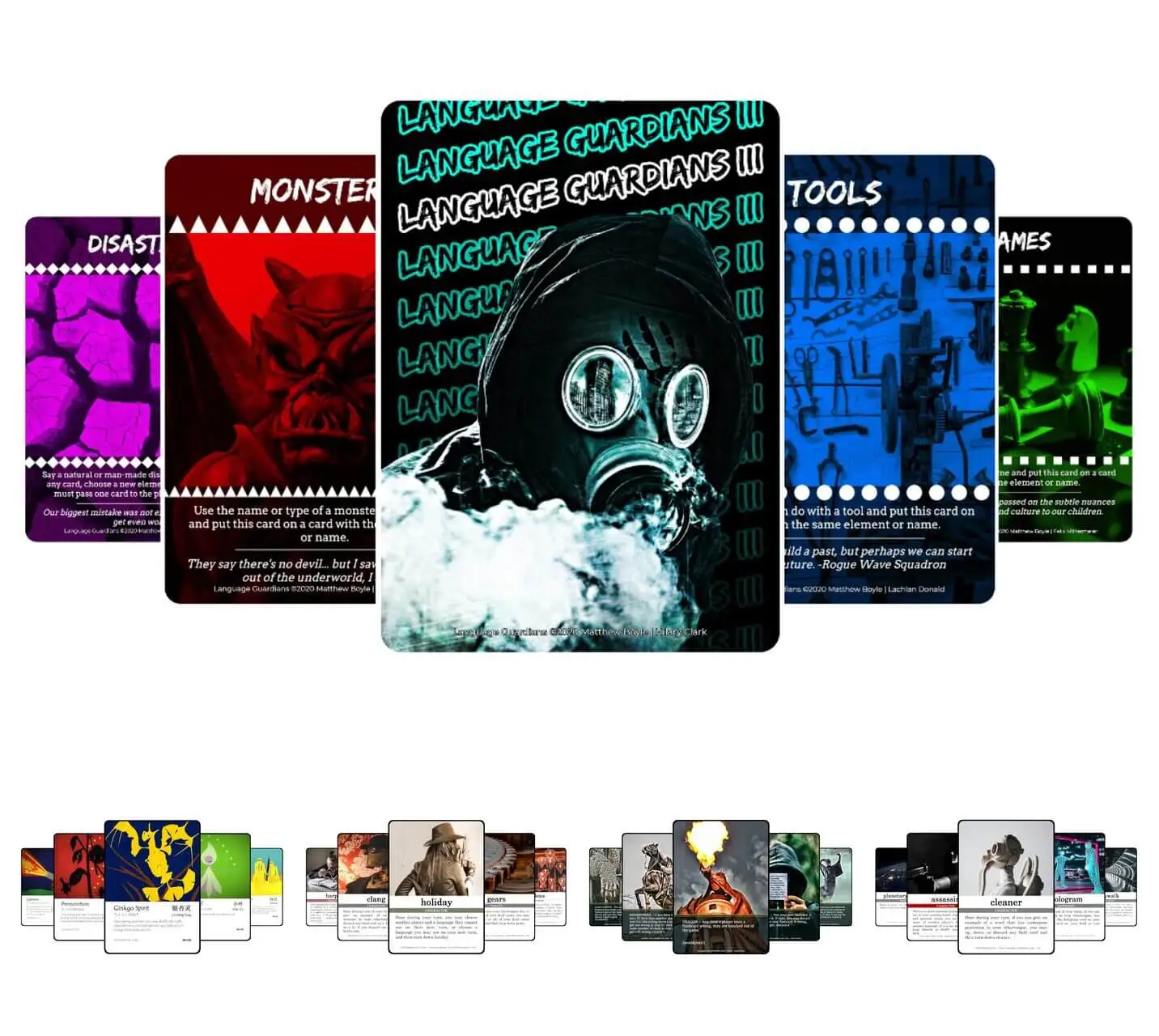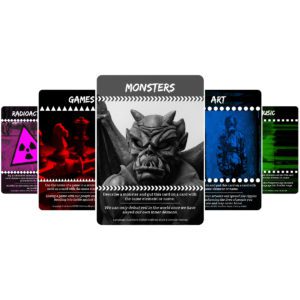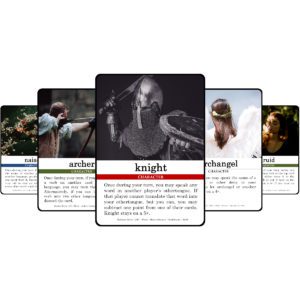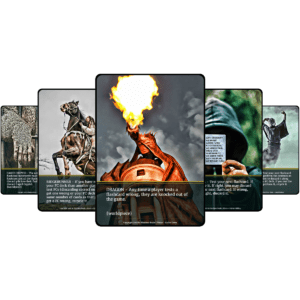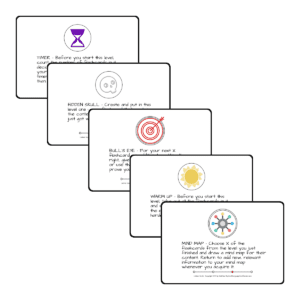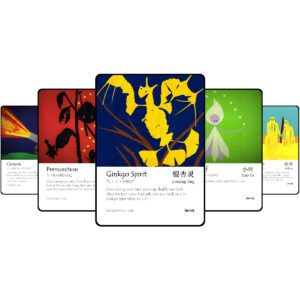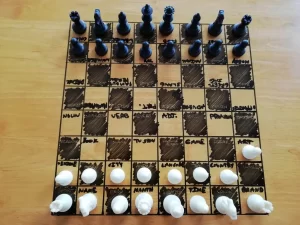Too many language learners out there are stuck in their own self-made matrix, mindlessly completing textbook exercises, poking at apps, or watching videos, most of the time alone. Is this happening to you? There’s no telling how quietly detrimental this can be to your progress and motivation. As a compelling alternative, I want you to imagine getting around the table with friends, family, classmates, teachers, language exchange partners, or even strangers, and playing card games for learning languages. Think of the funny and vivid stories that will be shared, explained, and never forgotten. Think of the hours enjoyed in a flow state, absorbing your target language without any friction. See the difference?
In fact, this is one of my favorite modes of learning and I am not unique in this. Countless people have already discovered that playing card games for learning languages helps them to overcome shyness, relieve boredom, ignite creative speaking, and improve memory, but many of them are playing games that were not specifically designed for language learners. And while there’s nothing at all wrong with that, today I want to show you new and innovative card games expressly crafted for language learners that have disrupted the market in recent years. They will take your abilities to the next level naturally and easily by reconnecting you to the joy and magic of authentic social learning.
#1 – Language Guardians
Language Guardians is a mash-up of UNO and language learning, which makes it super easy to learn and suitable for almost any age. (If you’re not familiar with UNO, it is based on an older game popularly known as Crazy Eights, which may even be based on still older games.) To play, you match cards down by color or rank when it is your turn, and the first player to get rid of all their cards wins! Wild cards can change what happens.
Language Guardians puts a unique twist on this classic form of gameplay by prompting players to speak words in certain categories before they can match their cards down. What’s more, the different colors of cards give you an additional requirement to speak within: green represents nouns, blue represents verbs, black and white represents adjectives, and red represents complete sentences. Players can challenge each other if they think someone spoke incorrectly, forcing the loser to pick up more cards.
One potential drawback of this game is that the cards themselves will not teach you your target language directly, but rather, the other players will. Because what you are supposed to do with this game is play it with other people who know or are learning that language, and the knowledge of the group will permeate the game and teach you through the game. When understood in that way, Language Guardians is a vehicle and the potential for how much you can learn is virtually limitless. By playing this game with different people or by utilizing successive editions of this game, you will always learn new things from the other players. Thus, the replay value is extremely high.
Language Guardians is designed to be used regardless of the players’ target languages and you can have different target languages happening in the same game. However, for most people it is probably best if you play with others who are learning the same language as you. I, for one, love mixed games, though, because I like to learn about other languages and cultures in general. Sometimes I play with my Mandarin or Cantonese tutors, but at other times, I’ve played in mixed groups with as many as five different languages flying!
#2 – Othertongue
Like Language Guardians, Othertongue is exceptionally versatile because it can be played regardless of the players’ target languages. So how does it differ? Well, the one important difference is the difficulty level. Whereas Language Guardians is great for casual gamers or even non-gamers, you really have to be an experienced card gamer or board gamer to get Othertongue.
The most relatable comparison I can make between Othertongue and another card game, is by bringing in Magic: The Gathering (MTG). But I make that comparison not because the gameplay is similar…it is not. The rules are different. The gameplay is different. I make that comparison because their complexity level is similar. To play this game well entails you (1) build your own deck, which matches your current ability level with your target language, and (2) learn the unique rules that appear on each individual card, which takes time. I believe some of you will be extremely excited when you read this (as I am!) because you intuit what this means. It means you can fully customize your language learning process through a game and then battle others with cards that represent the best of what you know.
Yes, battle! In Othertongue, your knowledge of your target language becomes your power, your weapons, your ammunition. By speaking words in your target language, you can activate the special abilities of your cards and hurt or help other players. In the basic format of play, whoever has the most points at the end of the game wins. Every card you have in play is automatically worth one point and can accumulate or lose points during the game.
#3 – Fighting Flashcards
If you’re the kind of person who likes to study languages with flashcards, but also likes to play card games, get ready… you’re gonna love this! Fighting Flashcards is the first of two games I’m going to introduce to you right now that require you to bring your own physical flashcards that you’ve already made to the table. Yep, you read that right. There’s even more that can be done with those!
Fighting Flashcards turns normal flashcard review into something more like a battle, less like a chore. In terms of difficulty level, it sits somewhere between Language Guardians and Othertongue. You don’t need to be a hardcore gamer to get it, but at the same time, it will give you a bit more to chew on than Language Guardians. It is still versatile, however, just like those games are, because players can use basically any flashcards they have to play… and not only foreign language ones. For example, I could battle my Mandarin flashcards against your Spanish ones, her psychology ones, and his history ones. Since players bring their own flashcards to the battle, this game automatically levels itself to an individual player’s ability level. An elementary school boy and his flashcards have the same chance of winning as a PhD and her flashcards.
How it works is like this: you keep your flashcards in front of you and I do the same. The Fighting Flashcards, however, are shared by us. We take turns drawing a Fighting Flashcard, and reading and completing a challenge. Generally, a challenge will ask you to test your next flashcard in a certain way. If you can’t do it, you’re going to have to recycle your flashcard to the bottom of your flashcard pile. If you can, you can set it aside. Proceeding in this way, the first player to get through all of their flashcards wins!
One awesome aspect of Fighting Flashcards I shouldn’t forget to mention, is that there are “worldpiece” cards in this game, which, once drawn, remain on the field and permanently alter gameplay. Take the “Dragon” worldpiece card as an example. When it is in play, if anyone tests a flashcard wrong, they are immediately knocked out of the game. Damn… that’s rough, but it sure as hell will get you to memorize what needs memorizing.
#4 – Leitner Cards
Next up is the second of two flashcard-related games I promised to tell you about and it is called Leitner Cards. Are you familiar with the Leitner Box or spaced repetition systems for memorizing things? (If not, you may want to tune into my Ultimate Leitner Box Series, which explains that because it can work wonders for your language learning and learning in general.) In sum, a spaced repetition system asks you to follow a calendar and test yourself on different groupings of flashcards on different days. The flashcards you get right, move to higher groupings and you will not test them again for exponentially increasing intervals of time. The flashcards you get wrong, move back down to lower groupings and you will test them again soon. It is a very efficient method for memorizing stuff that was pioneered by Sebastian Leitner.
Leitner Cards seeks to gamify this method a step further as well as qualitatively deepen your engagement with whatever flashcards you have. (And yes, this game can work with practically any flashcards, not only foreign language ones.) So instead of continually going through your flashcards by rote, testing them one-by-one, using a single learning modality of question-answer-question-answer, when using Leitner Cards you might need to draw, sort, speed up, make connections, create a ditty, or paraphrase in new ways your flashcards’ contents in order to pass the challenge.
I would say this game is most suitable for people who enjoy using flashcards, but also those with more of a DIY, crafty spirit, young children, or older people still in touch with their childlike heart. It can assist you in developing your creative thinking and lateral thinking around key concepts rather than narrow-mindedly pushing straight through them. It makes reviewing flashcards an experience as opposed to a boring task. It can breathe new life into a stale habit. What’s really cool, too, is there are a few blank cards included with the game, so that you can invent your own challenges.
#5 – Chinese Champions
I put Chinese Champions last on this list because it is probably the most niche language card game I want to introduce. Chinese Champions is specifically geared towards Mandarin Chinese learners. So whereas the other games can be used by almost anyone, this one is meant for a very particular audience. This game swiftly became popular, but more so for the artwork and the vocabulary and less so for the game. Actually, the game is a little bit complex. There is a learning curve to it. Maybe that is what gives people pause. But I actually think that is good. If you’re interested in picking up some extraordinarily meaningful vocabulary and want to use this card simply to study and memorize vocabulary, you could benefit tremendously just by doing that. And if you want to do the game, you can do the game. Perhaps you could study the words first and then play the game later.
But so what’s this one all about? In Chinese Champions, other players will draw a card from your deck and test you on the vocabulary word there. If you can translate it correctly, you can take the card and use it to fight. If you can’t, the card is either discarded or put back into the bottom of the deck (depending on which rule set you prefer). Therefore, if your memory is good, you will have more resources to fight with. If your memory is poor, you will lack characters, weapons, and magical spells, and probably lose the fight on account of it.
Chinese Champions 1 is more fast-paced. That is the one with bold, colorful, papercut artwork. Chinese Champions 2 is more ponderous, like a chess game. It showcases photography from several provinces of China and also includes some micro-fiction stories.
If you want a unique inroad into Chinese language or culture, or even if you are experienced with that, but you’re looking for further enrichment, I recommend you dive into the world of Chinese Champions because many of the word choices and pictures introduce players to something marvelous about the Middle Kingdom. Additionally, there are video tutorials online to teach you the pronunciation of each card and the meaning behind some of the cards.
How Card Games For Learning Languages Helped Me
My journey into card games for learning languages began with an epiphany, an epiphany that when I ostensibly felt too tired after work to study my foreign languages, I actually had plenty of energy to play games. So I realized something then, which is, in truth, we almost always have plenty of energy to achieve the goals we have for ourselves, our brain just needs a change of scenery or a change of medium. Instead of expecting yourself to always enjoy or have energy for studying, sometimes it seriously helps to think more creatively about how to approach the subject matter, to play, and to explore. To think more like a child and less like an adult. And to learn in very different ways or customized ways. When it comes to our foreign language practice, card games for learning languages can help us do just that!
These days, I have a fire in my soul that will never die for language learning, a fire that I rekindled with the games above. Card games for learning languages can be played just about anywhere, anytime, with anybody. They unlock memorable conversations and stories. And just as in life, where our language prowess influences our chance of making progress, building relationships, netting opportunities, and achieving victories, in card games like the ones I’ve shown you today, your language prowess influences your chances of winning, too! So what are you waiting for? The power and magic of foreign languages are in your hands!
